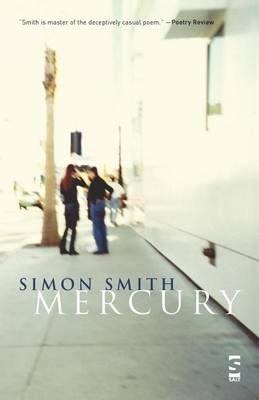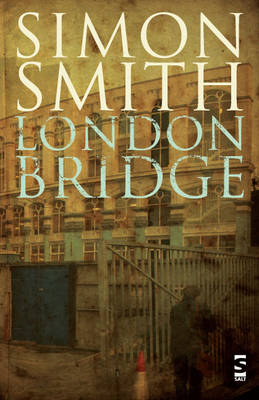Salt Modern Poets
3 total works
Reverdy Road is a book of poems celebrating the aleatory. They are various responses to their now. Each poem is an open gift, a happy thing in the world - there's plenty of time to be depressed later on. The book is in three parts divided by treatment rather than matter. But it is the matter of words that is the very subject, and how they signify that matters most. There is no discernable progress, more a marking of time, place, gesture, answering questions through their own musculature. They have embarked on no journey, but they seem to be heading to another destination from a location we can't know. We are getting there, however. Like Orpheus there is no looking back. Making the world a better place is their business and purpose, they are friendly and want to talk to you. They won't hurt. They ask very different questions from journalists, but they love journalists. The body's place is the question they ask and answer they are giving - how do bodies move and remove themselves. The engine is a black Moleskine notebook. Where they enter life. As Smith says, "All my life they lived under my skin, now they enter your circulation."
Simon Smith's Mercury comprises three sections or "books" filled with his characteristic gem-like poems. As with his earlier collection Reverdy Road, Smith's poems demonstrate tremendous wit and profundity tempered by lightness of touch. This is a wonderfully accessible collection which casts a knowing eye on Roman classics and contemporary life.
This remarkable new volume sports the brevity and cheek of Martial's epigrams, providing the excuses and occasions - Mercury is a book of pith, turning on an urban-knowing wit, a rag-bag of flip, it embraces the complexities of ordinary language and expression. Veracity sounded through fleeting moments; these are poems that say difficult things simply.
Mercury is Simon Smith's third full-length volume of poetry.
On Reverdy Road:
"When asked to name my favourite Salt book for 2003 my answer was Simon Smith's Reverdy Road ... it was such a surprise ... reading so many [images] together, they exploded into clarity ..." -Tim Allen, Terrible Work
"Smith is master of the deceptively casual poem.... At its best ... [his] use of the short form over so many pages achieves an effect comparable to a villanelle." -Simon Coppock, Poetry Review
"The Jack Lemmon of English poetry." -Geraldine Monk
London Bridge is Simon Smith’s fourth collection of poetry, and his third with Salt. New to this accessible book is the way each poem can stand-alone or feature as part of the main sequence, a sequence which has its roots, with its author, in the place and mindscape of South East London. This book is a new development for Smith, explicitly locating the poems in the geography and history of this almost bypassed corner of the Capital, taking in the ghost traces of Blitz bomb damage; the everyday life of the Old Kent Road and A2 grafted over the first arrival of tramping Roman legions; the ghost of Robert Browning; and Telegraph Hill, the navigation point for airliners, holidaymakers, terrorists and business people into Gatwick and Heathrow. This collection continues too the humour and wit of Reverdy Road and Mercury with a nod towards the New York School, via the world of virtual reality and the vogue for poetry anthologies, as well as the incisive precisions of e.e. cummings or William Carlos Williams.
Versions of poetry from other languages also figure in London Bridge. The Orpheus and Eurydice story is revisited in Rilke’s re-telling; a translation of Apollinaire’s last poem, `The Auburn Stunner’ appears tracing the junctures and disjunctures of war and love; and the poems on the death of children by the Roman poet Martial lend a darker vein and further dimension to the collection.
This is a book that sifts and collects the data of a life lived in the City amidst the immediate and contingent camera-shake and confusions of the everyday.


